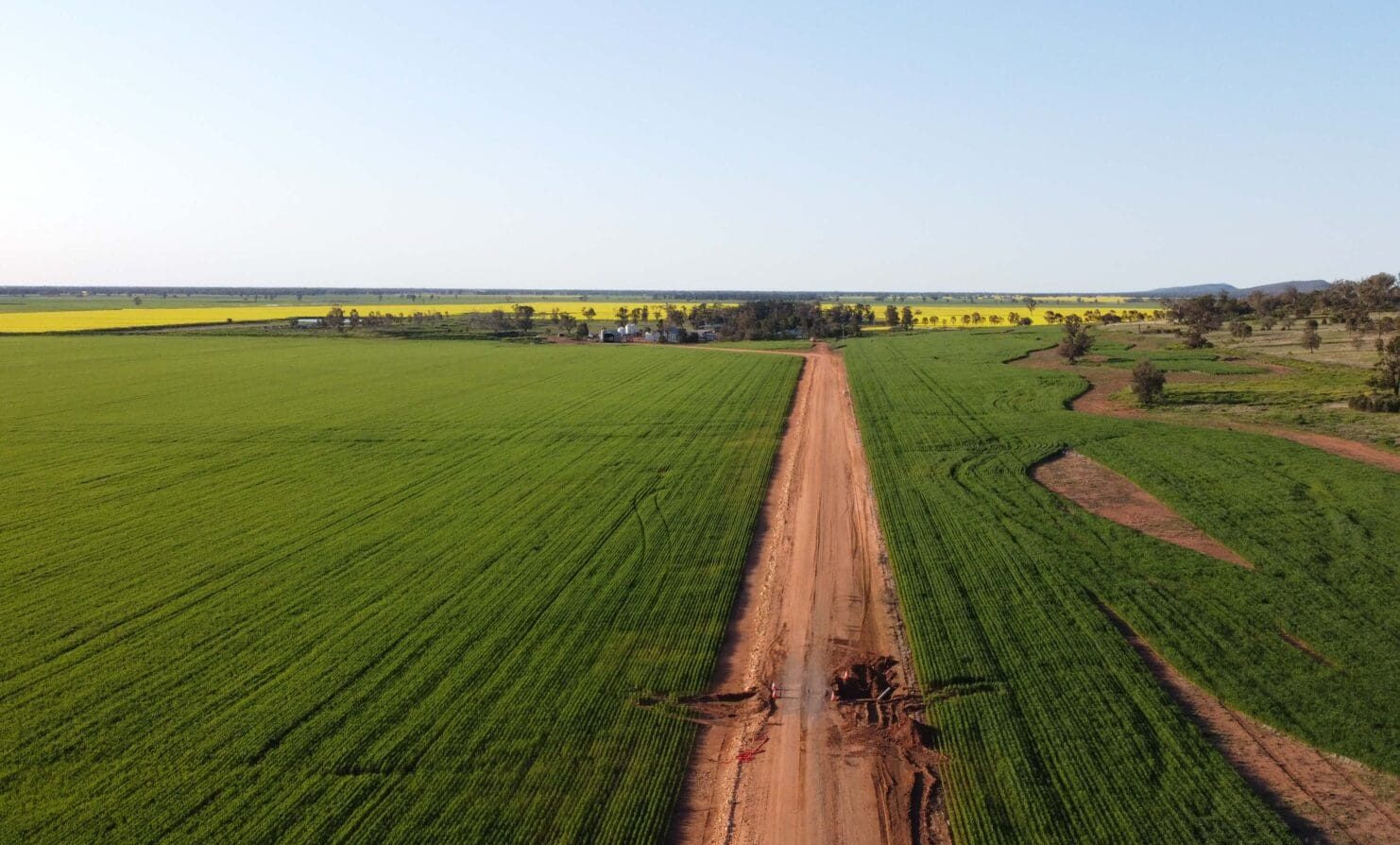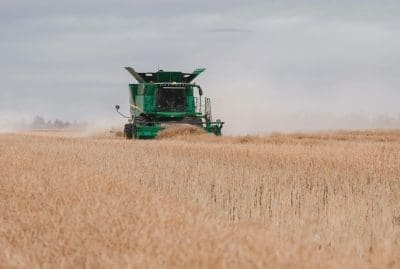
Last month Duxton announced plans to offload Kentucky, a broadacre cropping aggregation near Forbes. Photo: LAWD
LISTED farming enterprise Duxton Farms has updated shareholders on its transition to a more diversified portfolio with an increased focus on irrigated cotton, horticulture and cropping in the Northern Territory.
Historically, Duxton’s activity had centred on dryland cropping and livestock in central New South Wales; however, drought and flooding prompted the board to move the business into different geographic areas and commodities.
This work began with the sale of Timberscombe, an 8432ha cropping property on the south-west slopes of NSW in April, and has continued with the recent listing of the 6438ha Kentucky Aggregation near Forbes.
Duxton Farms chair Ed Peters said the strategy for the company has been focused on “positive, constructive change”.
“Kentucky is a wonderful property and, like Timberscombe before it, I’m very confident that it will be part of a fantastic portfolio better suited to its considerable size,” Mr Peters said at the company’s annual general meeting on Friday.
“For us, the goal has and continues to be to cycle out of dryland cropping assets to deploy capital into projects to facilitate a more diverse portfolio of agricultural assets.”
Mr Peters said this strategy will be to focus on building the irrigated cotton hectares at the NSW aggregation, develop pistachio plantations at Piambie on the Murray River, and expand cropping in the Northern Territory, alongside maintaining a profitable cattle operation.
“Assuming the campaign to divest Kentucky concludes as planned, Duxton Farms will soon find itself in a position operating three much more focused aggregations in an exceptionally strong position to continue our strategy of expanding into other subsectors of Australian agriculture.”
After the sale of Kentucky, Duxton will continue to manage 8536ha in NSW across five properties, while in Victoria, it owns and operates the 1185ha Piambie property.
In the NT, Duxton leases Moutain Valley, a 141,000ha cattle operation, and is contracted to develop the 2386ha NT portion 5088, an irrigated cropping block.
In July, Duxton was also announced as the preferred proponent to develop the 28,000ha Wildman Agribusiness Precinct, a farming operation suited to cropping and cattle located 130km south-east of Darwin.
Duxton Farms director Stephen Duerden said irrigated cotton was a key commodity for the remaining NSW properties.
He said the marketing process for Kentucky was progressing well, with expressions of interest closing in a few weeks.
“After this transaction has been completed, Duxton Farms NSW aggregation will look fundamentally different, with a much larger focus on irrigated cropping and cotton production,” Mr Duerden said.
“We’re looking to deploy capital back into the remaining NSW aggregation to increase the area under irrigation where possible.”
He said work was well under way to transform Piambie’s pistachio plantations, with 297ha established in two years.
“In the meantime, the operations team will be able to continue producing irrigated winter crop for the next few years at Piambie, although eventually most of the areas suitable for irrigation will be planted out to pistachios.”
NT developments
In the NT, Duxton Environmental, Governance and Social Subcommittee chair Paul Burke said the company was progressing two projects targeting further investment diversification.
The former NTFarmers chief executive officer said the team was restocking Mountain Valley Station which was “nearing its long-term carrying capacity”, and working through approvals required to extend crop production on the site.
“The long-term goal at Mountain Valley is to create a cropping program with a focus on rainfed dryland fodder and cotton production,” Mr Burke said.
He said Duxton also hoped to negotiate a significantly longer lease for the property to “properly capitalise on that opportunity”.

The winter crop harvest is underway at Duxton’s NSW properties. Photo: Duxton
“We expect to be reporting on progress on this front in the next 18 months.”
Mr Burke said the company was excited by the opportunity to develop the NT Portion 5088 and the Wildman precinct.
“NT portion 5088 and Wildman have extraordinary productive potential and previous studies have highlighted their suitability for not only fodder, cropping, but also fruit and vegetable production and permanent horticulture.”
Cropping update
After harvesting its second-largest winter crop on record last season, Duxton Farms earlier this year finished with record cotton production of 8506ha.
The company was also able to plant a full winter-cropping program in NSW, which commenced with wet conditions and finished well in hot and dry weather.
Duxton Farms operations general manager Bryan Goldsmith said harvest was underway for the current winter crop which was expected to be in the range of 23,500 tonnes.
He said the teams pulled up due to the recent rainfall but were hoping to “get back into it” as soon as possible.
Mr Goldsmith said yields were “lower than budgeted on the canola due to frost damage” consistent with crops in the wider region.
He said there were “but reasonable expectations for the cereal crops are either meeting or exceeding budget”.
At Piambie, Duxton planted 420ha of irrigated wheat which was yet to be harvested.
Mr Goldsmith said employees were preparing to plant forage sorghum at Mountain Valley and progress plans to expand its cropping area.
“We are currently undertaking survey work to potentially increase areas for cropping as part of the continued work to develop areas for cropping.”

HAVE YOUR SAY